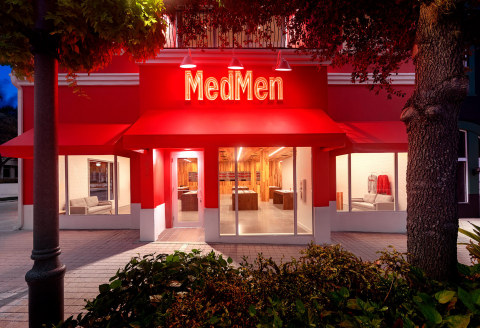
As downtowns everywhere struggle through the coronavirus pandemic, demand for downtown space has emerged in the form of state-regulated cannabis dispensaries.
Office workers are staying home, retail shopping is shifting online, and restaurants and bars have been compelled to reduce their capacities — but legalized marijuana has provided a new source of downtown tenants.
In New Jersey, where recreational cannabis was legalized Jan. 1, downtown leaders are looking for ways to accommodate new demand from marijuana dispensaries.
“It has a tremendous opportunity to benefit small towns like Flemington,” says Mayor Betsy Driver of Flemington, NJ (est. pop. 4,608). “We really need jobs.”
In West Palm Beach, FL (est. pop. 111,952), cannabis companies have picked up the slack in a downtown that hasn’t always achieved full occupancy of commercial spaces. State-licensed dispensaries of medical marijuana occupy two prominent corners on Clematis Street, the district’s main drag.
The businesses have taken spaces that experienced revolving doors of tenants, says Raphael Clemente, head of the West Palm Beach Downtown Development Authority.
One business, MedMen, moved into a 7,500-square-foot space in 2019. “Since the 1970s, downtown has struggled to fill these big spaces. It’s difficult to recruit retailers to our downtown core, and there’s only so much demand you can fill for restaurants,” Clemente says.
While a voter referendum that passed in 2016 legalized marijuana, Florida cities can restrict cannabis businesses. The city decided to allow marijuana businesses to operate downtown. While opponents predicted pot shops would attract crime, those fears have not been borne out.
More on bringing cannabis stores downtown, attracting remote workers, and promoting reopening appear in the March issue of Downtown Idea Exchange . Click to learn more about Downtown Idea Exchange and other resources for revitalizing downtowns and commercial corridor


